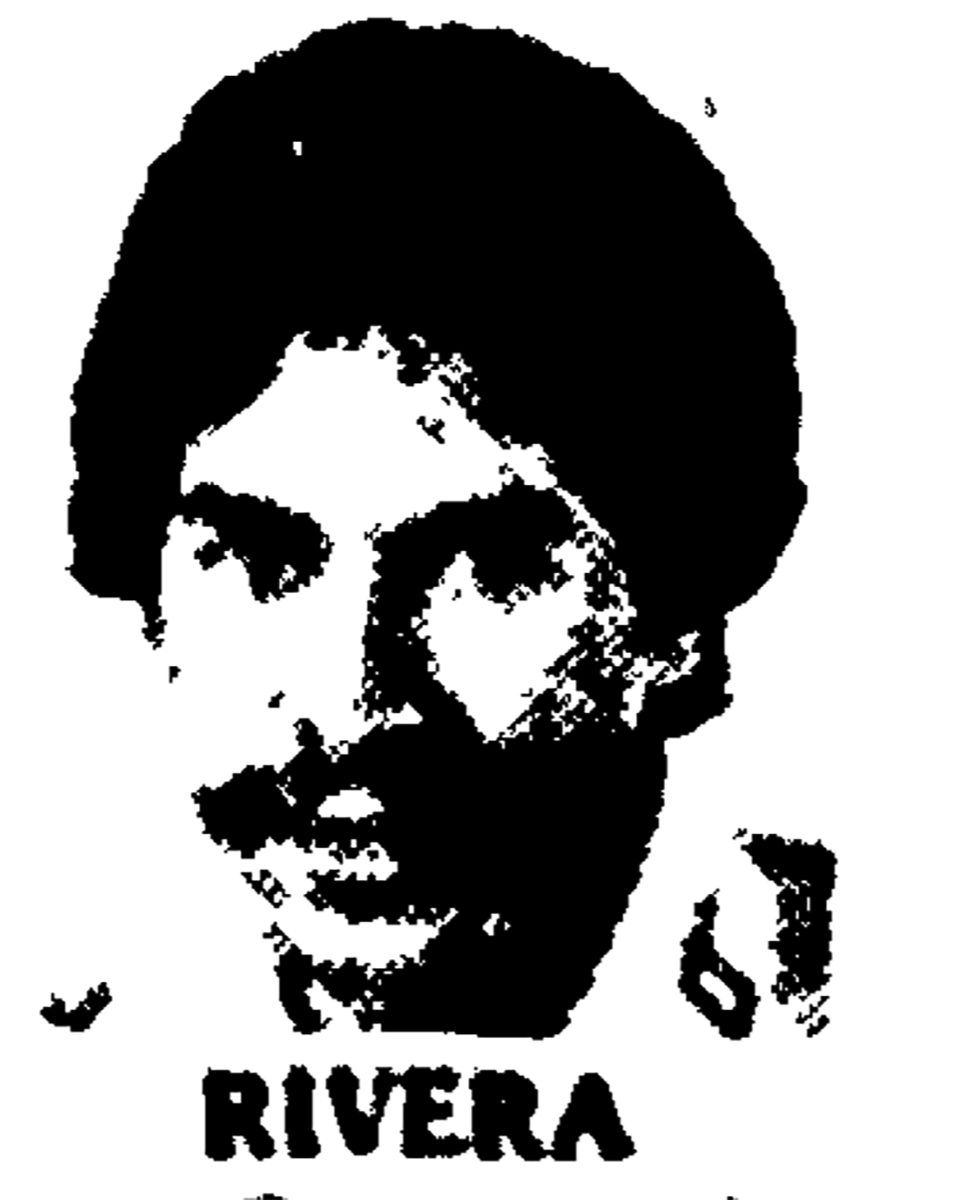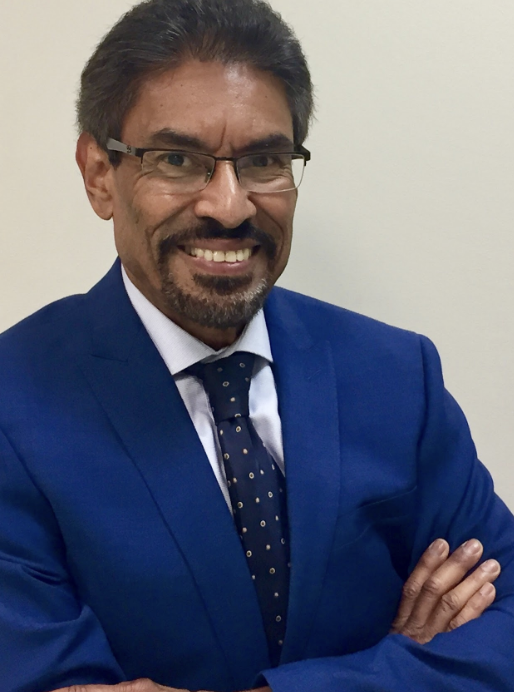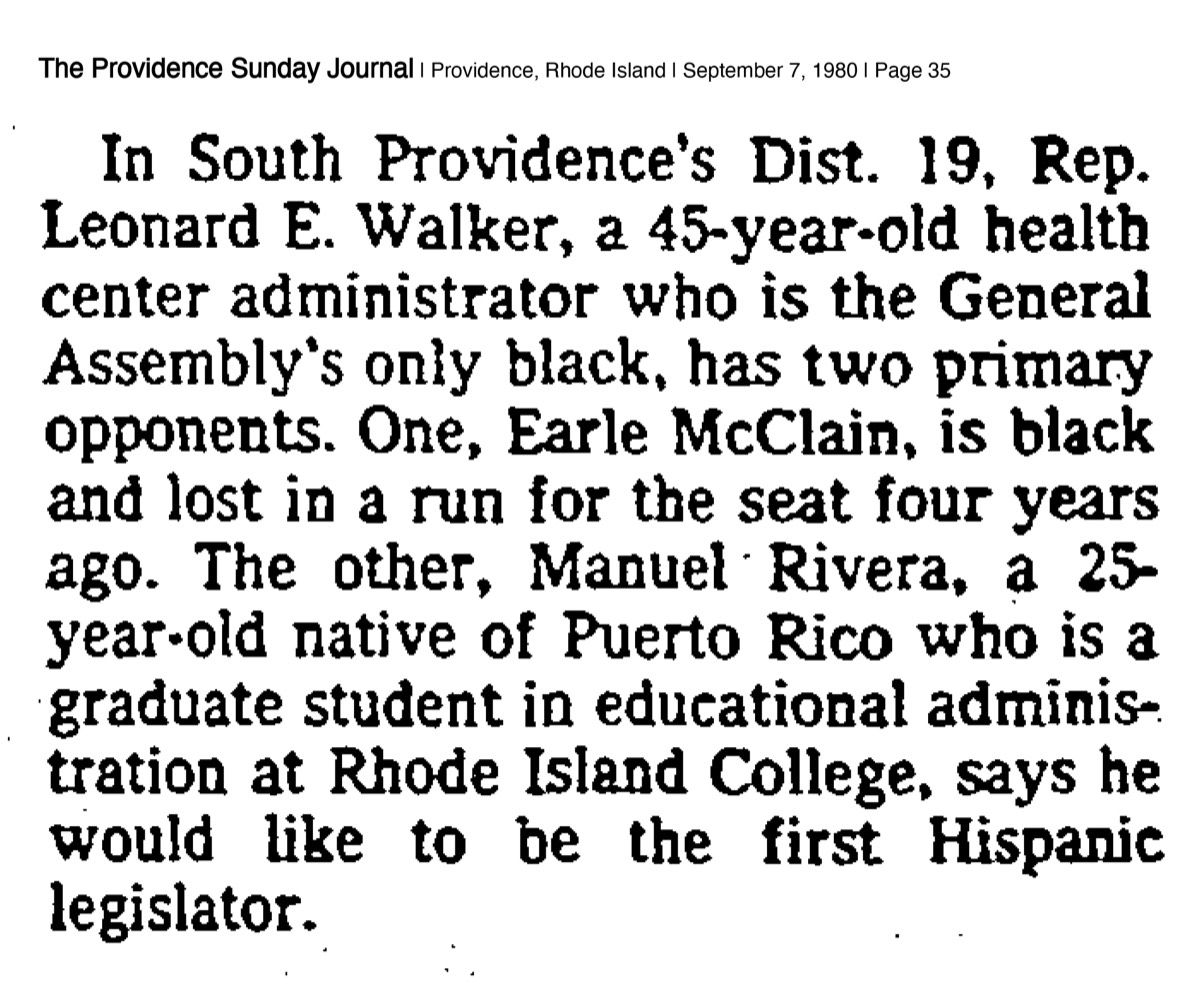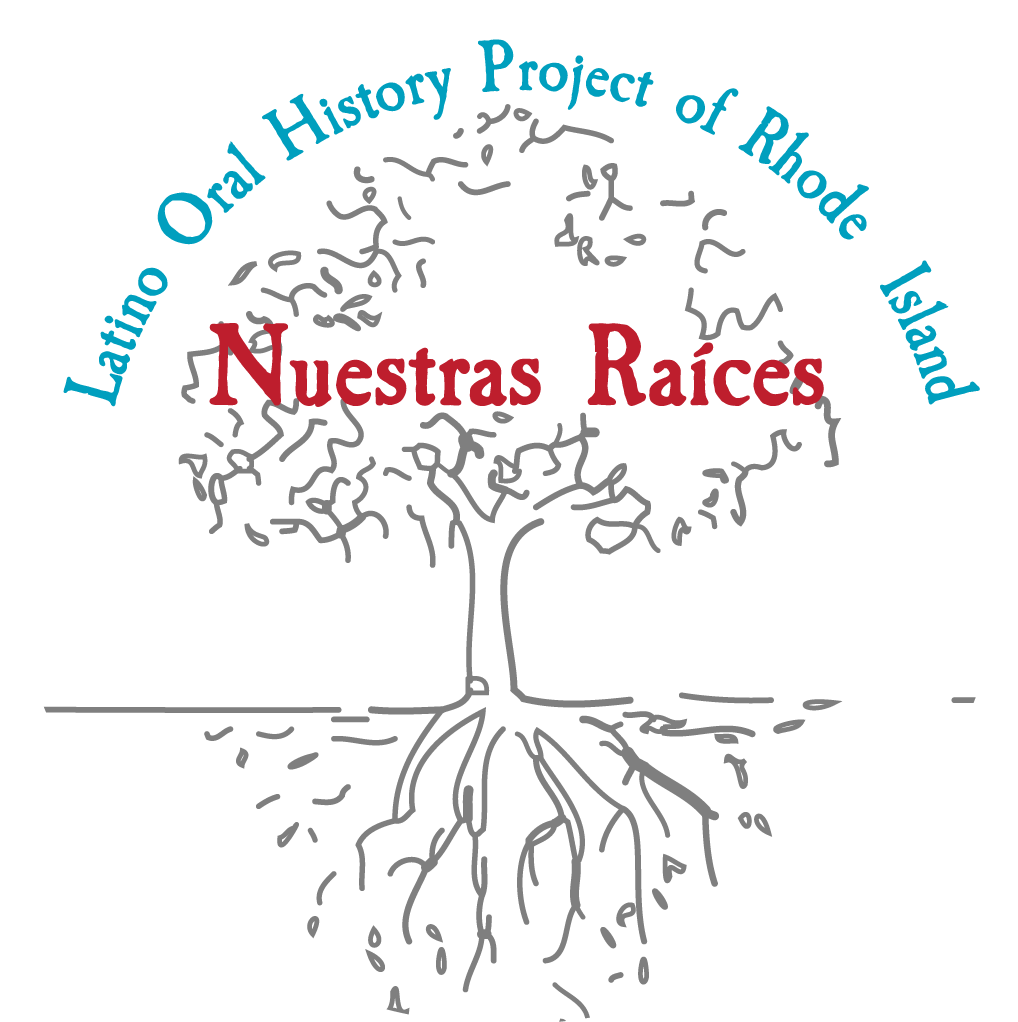First Latino in Rhode Island to run for political office

…………………………..
Above photo: 1986

Manuel Rivera wears several hats when we talk about Latino history in Rhode Island. Originally from Puerto Rico, Manuel, known as “Manny” by close friends, moved to Rhode Island in the 1973, attended schools in Providence, and then enrolled in Rhode Island College (RIC). While at RIC, he and brothers Roberto and José González founded the Latin American Student Organization (LASO), the first student organization of its kind on the campus. In an article written by Rivera in The Anchor, the campus newspaper, LASO is described in this way: The club was founded in 1973 by ‘Latino’ students here. The founding members discovered a need to unite and create an awareness of cultural, social, and political conditions affecting Latinos.
‘I was 24 years old when I ran, and I’m proud that as far as the records show, I was the first Hispanic to run for any office in Rhode Island. Today, when I read the paper, I am amazed at how many Hispanics have gotten elected in Rhode Island!
Manuel Rivera
While a Senior at RIC, Rivera was fortunate to be selected as one of two Senior students [and the first Latino] on campus to participate in the College Internship Program, and he spent several weeks in Washington DC, with then Congressman Edward P. Beard (D).
According to Rivera, his interest in running for office started during this time: “Right before I graduated, when I was in the political science program, I did an internship where I got the chance to interview politicians at the Capitol. While there, I met so many people who were interested in politics, in running for some sort of office. And I thought, ‘well, you know, I can do the same. I'm a U.S. citizen, right?’
But first, he wanted to learn more about local politics.
'After I graduated from RIC that year, I got involved in Rhode Island politics, working on various local campaigns. And then I started meeting people, many who said, ‘You know, the Hispanic community is growing, and they have little political power.’ I thought about it and looking around me, I saw that, because Hispanics were still so new here [in the 1970s], most who were interested in supporting the politicians were not yet citizens, and in reality, could not vote. '
Rivera thought more deeply about that and decided the best strategy is to start a registration drive. And because they were already American citizens, the drive focused mainly on the Puerto Rican community. In April of 1980, he hosted his first of many drives at the Urban Educational Center (UEC) in South Providence, where he saw the lowest voter turnout anywhere in the state.

Subsequently, in June of 1980, he decided that he would run for office. According to an article in the June 12,1980, Providence Journal, Rivera filed to run in two local races: House District 19 and Senate District 9.
Two Races? According to Rivera, running for two offices at the same time was allowed at that time: ‘Yeah, I did some research and found that back then, people could run for more than one office, so I decided to throw my hat into both races and see which one I could get the most support. And seeing that I got most of the support for the House, I dropped out from the Senate race, where John O'Leary [of Cranston] was running.’
'Unfortunately, I did not win … the incumbent, Lenny Walker, was reelected.'
However, Rivera's personal victory lies in that when he ran for office, it was the first time any Hispanic ran a serious political campaign in the State of Rhode Island.
Two Races? According to Rivera, running for two offices at the same time was allowed at that time: ‘Yeah, I did some research and found that back then, people could run for more than one office, so I decided to throw my hat into both races and see which one I could get the most support. And seeing that I got most of the support for the House, I dropped out from the Senate race, where John O'Leary [of Cranston] was running.’
'Unfortunately, I did not win … the incumbent, Lenny Walker, was reelected.'
However, Rivera's personal victory lies in that when he ran for office, it was the first time any Hispanic ran a serious political campaign in the State of Rhode Island.
What Next?
By 1982, Rivera, had his Master’s degree and was working as a language programs coordinator at John Hope Settlement House. According to a Providence Journal article, which quoted him as spokesman for the Committee of Concerned Hispanic-Americans, Rivera called for a meeting with Mayor Buddy Cianci to question the mayor’s Affirmative Action campaign promises, and to demand a written strategy to recruit more Hispanics to city jobs. The article focuses on the need for hiring bilingual Hispanics in emergency positions, such as fire dispatch and communications.
By Fall of that year, Rivera was accepted to Antioch Law School in Washington, DC where he graduated in 1986 and today, still has an active practice and works on cases dealing with immigration and human rights.
When asked why he did not run for office again, after 1980, Manny responds: ‘Well, there were many people who wanted me to run again, but it was costly and I ran out of money. It also would have meant that I would have to put my career or my education on hold, and I think back then you were getting paid something like $5.00 per meeting [as an elected official] or something like that. Something very ridiculous. I don't know how much they get now, but back then, I could not live on that.
Also, when you're in politics you're the front guy, you're the leader. I realized that people would probably not want to hire you, because [politicians tend to be] outspoken. And organizations or businesses might be afraid to hire you because you might say something that would potentially hurt your place of employment in some way.
‘So, I quickly realized that if I were to run again, I would be faced with another barrier, like the many I had already faced: That I was not going to get a job, a good job. And if I wanted to stay here [in Rhode Island], I would have to establish my own business and I didn't have the money to establish a business, or the experience to do so. So, I decided to go to law school and get a degree and to find a way to advocate through my practice.’
Did he miss working in politics? 'Yes, deeply. My law practice sustains me financially and often leaves me filled with gratitude. But working in politics is my passion, it's more exciting. Running for office or working in a campaign brought me in touch more directly with issues, and I saw that it carried more power to make change that we as Latinos need to lift up our community.'
By Fall of that year, Rivera was accepted to Antioch Law School in Washington, DC where he graduated in 1986 and today, still has an active practice and works on cases dealing with immigration and human rights.
When asked why he did not run for office again, after 1980, Manny responds: ‘Well, there were many people who wanted me to run again, but it was costly and I ran out of money. It also would have meant that I would have to put my career or my education on hold, and I think back then you were getting paid something like $5.00 per meeting [as an elected official] or something like that. Something very ridiculous. I don't know how much they get now, but back then, I could not live on that.
Also, when you're in politics you're the front guy, you're the leader. I realized that people would probably not want to hire you, because [politicians tend to be] outspoken. And organizations or businesses might be afraid to hire you because you might say something that would potentially hurt your place of employment in some way.
‘So, I quickly realized that if I were to run again, I would be faced with another barrier, like the many I had already faced: That I was not going to get a job, a good job. And if I wanted to stay here [in Rhode Island], I would have to establish my own business and I didn't have the money to establish a business, or the experience to do so. So, I decided to go to law school and get a degree and to find a way to advocate through my practice.’
Did he miss working in politics? 'Yes, deeply. My law practice sustains me financially and often leaves me filled with gratitude. But working in politics is my passion, it's more exciting. Running for office or working in a campaign brought me in touch more directly with issues, and I saw that it carried more power to make change that we as Latinos need to lift up our community.'
Opening Doors for Future Generations
When asked if he ever felt that he was opening doors, perhaps cracking them open a bit for the next generation, Rivera ponders. ‘I was 24 years old when I decided to run and 25 on election night, and I’m proud, as it appears, that I was the first Hispanic to run for any office in Rhode Island.
And today, I am amazed [when I read the paper] at how many Hispanics have gotten elected in Rhode Island! Oh, my goodness, big positions. Back in the day, it was tough to imagine that any Hispanic in Rhode Island would ever run for governor, especially under the Democratic Party label.
‘Yes, I do feel that I opened some doors, and I believe I showed people that they should not be afraid or intimidated to step forward. It’s a big step, because when you challenge the incumbent, you must be ready, there are consequences; you have to be stable because it can affect you getting a job or that sort of thing.
At the time, I had nothing to lose. I had no money, I was young, and I had all these ideas about continuing my education if I failed. And, you know, I am amazed that the new generation has done so well. I do like to think that maybe the fact that I ran for office might have motivated other people in the early days to get involved in politics, and to the point that now we have representation in government. However, I still do not see that the level of representation we have in government represents the demographics in terms of numbers, so we do need more people to get involved and challenge the incumbents, or at least to support those that are challenging the incumbents. ◼︎
And today, I am amazed [when I read the paper] at how many Hispanics have gotten elected in Rhode Island! Oh, my goodness, big positions. Back in the day, it was tough to imagine that any Hispanic in Rhode Island would ever run for governor, especially under the Democratic Party label.
‘Yes, I do feel that I opened some doors, and I believe I showed people that they should not be afraid or intimidated to step forward. It’s a big step, because when you challenge the incumbent, you must be ready, there are consequences; you have to be stable because it can affect you getting a job or that sort of thing.
At the time, I had nothing to lose. I had no money, I was young, and I had all these ideas about continuing my education if I failed. And, you know, I am amazed that the new generation has done so well. I do like to think that maybe the fact that I ran for office might have motivated other people in the early days to get involved in politics, and to the point that now we have representation in government. However, I still do not see that the level of representation we have in government represents the demographics in terms of numbers, so we do need more people to get involved and challenge the incumbents, or at least to support those that are challenging the incumbents. ◼︎
Interview recorded over Zoom by Marta V. Martínez
November 1, 2023
Next | Miriam Salabert ➤
© All Rights Reserved | Nuestras Raíces: Latino History of RI © | When using materials from this website, please acknowledge by stating the name of the URL of the webpage on which it is displayed. Citations should include full bibliographic information as follows: Courtesy of the Latino Oral History Project of Rhode Island, Central Falls, RI.

